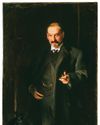
Until the mid-nineteenth century, opera was wedded to rhythm and rhyme. Librettists supplied composers with heaps of verse for arias and other vocal numbers, alongside chunks of prose recitative that allowed for interstitial exposition. The convention began to break down with Wagner, who expanded recitative to epic proportions. In 1867, the Russian composer Alexander Dargomyzhsky took a further step, setting Pushkin’s blank-verse play “The Stone Guest” almost verbatim. Mussorgsky followed with “Boris Godunov,” a Pushkin adaptation on a monumental scale. Thus arose a genre that became known as Literaturoper, because nothing officially exists until it is named in German. Composers did not need librettists at all; they could make direct use of plays and other literary properties. Two formidable prose operas emerged just after 1900: Debussy’s “Pelléas et Mélisande,” a condensation of the play by Maurice Maeterlinck; and Strauss’s “Salome,” after the decadent drama by Oscar Wilde. This summer, Des Moines Metro Opera, one of America’s boldest smaller companies, staged those two works side by side, sending psychic shivers into the hot summer night.
Bu hikaye The New Yorker dergisinin August 05, 2024 sayısından alınmıştır.
Start your 7-day Magzter GOLD free trial to access thousands of curated premium stories, and 9,000+ magazines and newspapers.
Already a subscriber ? Giriş Yap
Bu hikaye The New Yorker dergisinin August 05, 2024 sayısından alınmıştır.
Start your 7-day Magzter GOLD free trial to access thousands of curated premium stories, and 9,000+ magazines and newspapers.
Already a subscriber? Giriş Yap

BADDIE ISSUES
\"Wicked\" and \"Gladiator II.\"

LET'S MAKE A DEAL
\"Death Becomes Her\" and \"Burnout Paradise.\"

ANTI HEROES
\"The Franchise,\" on HBO.

FELLOW-TRAVELLERS
The surprisingly sunny origins of the Frankfurt School.

NOW YOU SEE ME
John Singer Sargent's strange, slippery portraits of an art dealer's family.

PARIS FRIEND - SHUANG XUETAO
Xiaoguo had a terror of thirst, so he kept a glass of water on the table beside his hospital bed. As soon as it was empty, he asked me to refill it. I wanted to warn him that this was unhealthy - guzzling water all night long puts pressure on the kidneys, and pissing that much couldn't be good for his injury. He was tall, though, so I decided his insides could probably cope.

WILD SIDE
Is Lake Tahoe's bear boom getting out of hand?

GETTING A GRIP
Robots learn to use their hands.

WITHHOLDING SEX FROM MY WIFE
In the wake of [the] election, progressive women, who are outraged over Donald Trump's victory at the ballot box, have taken to social media with public, vengeful vows of chastity. - The Free Press.

DEADLINE EXTENSION
Old age, reborn.